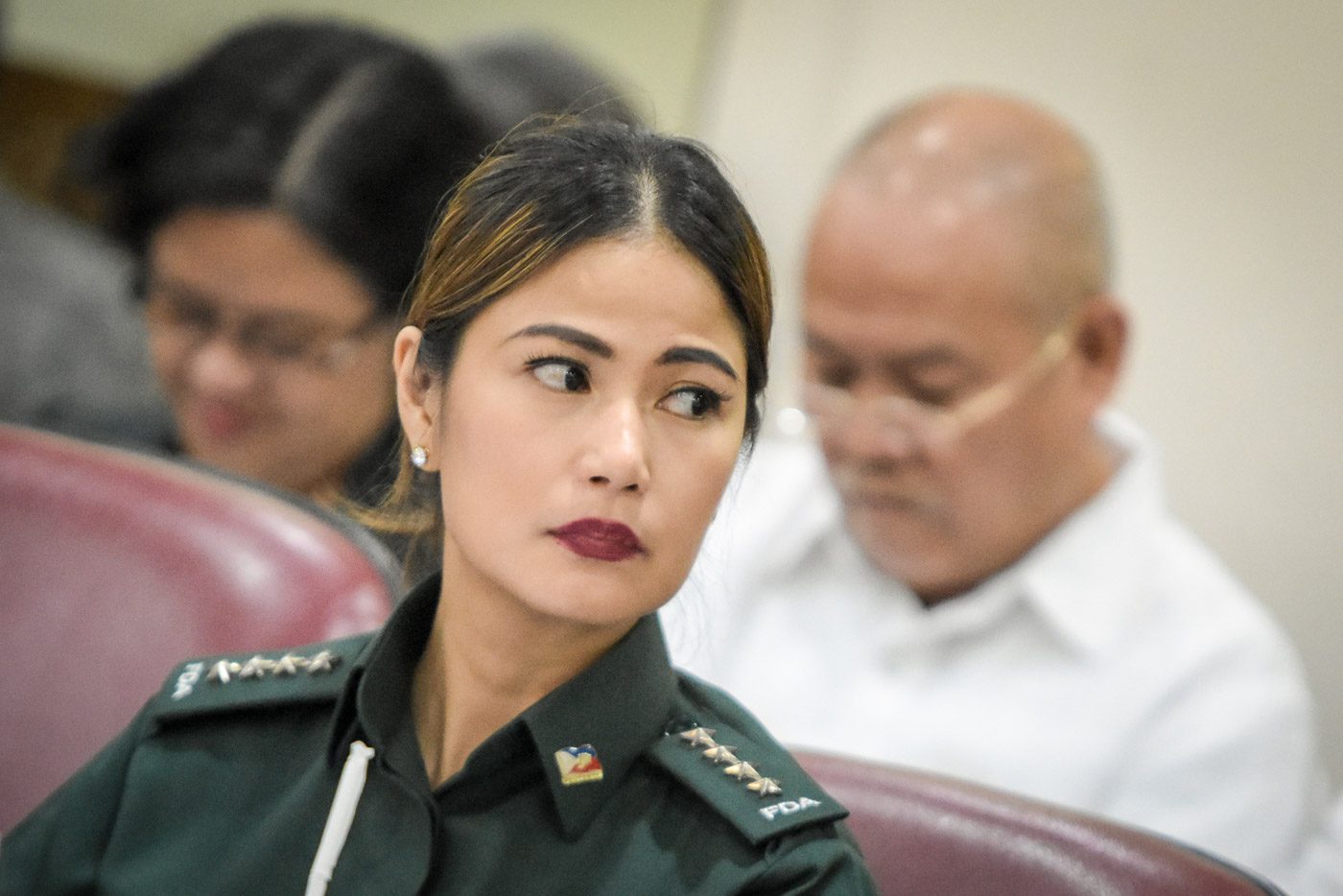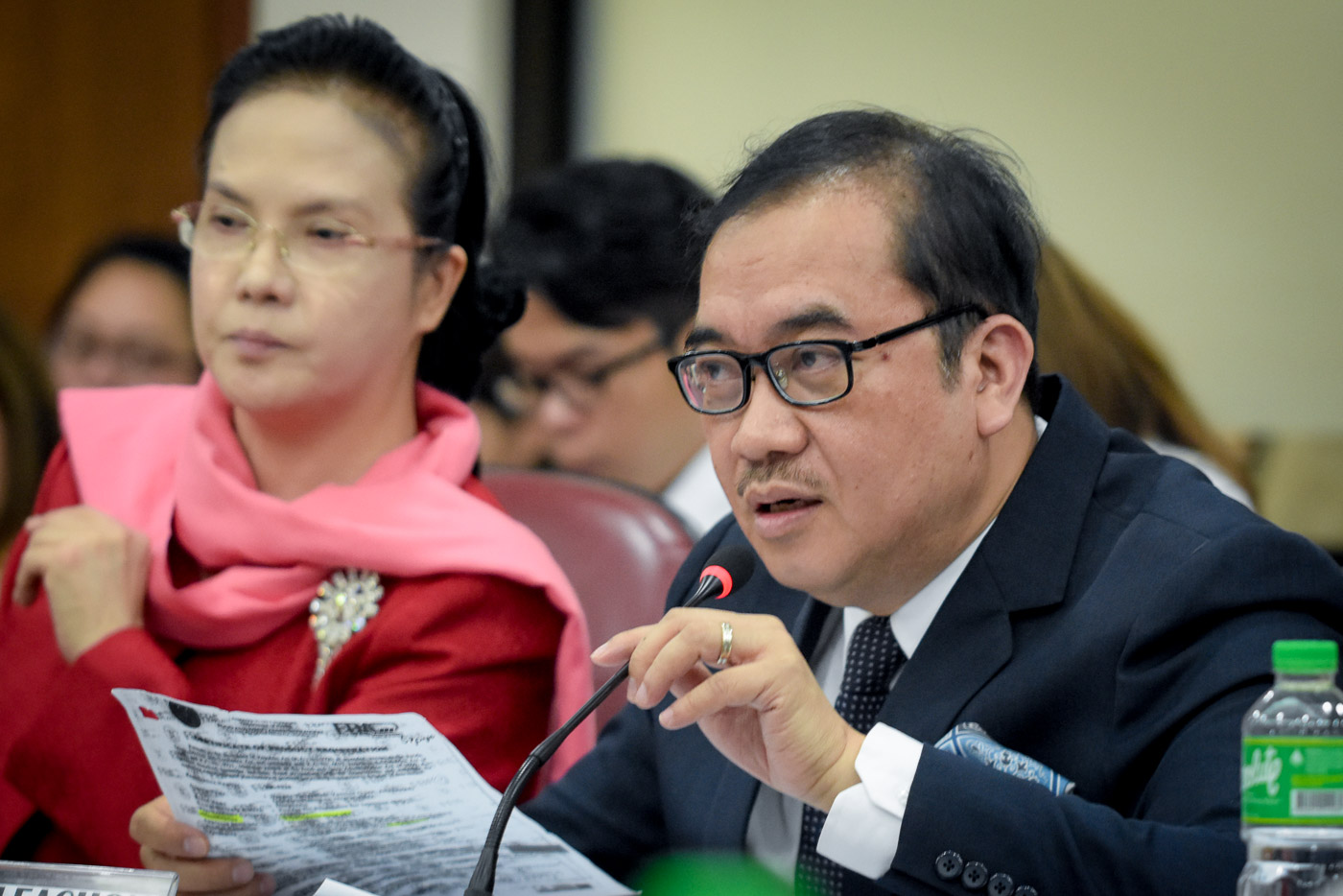SUMMARY
This is AI generated summarization, which may have errors. For context, always refer to the full article.


MANILA, Philippines (UPDATED) – Both the current Food and Drug Administration (FDA) chief and a physician said Sanofi Pasteur was well-aware of the risks of its Dengvaxia vaccine in 2015 but did not inform the Philippine government.
FDA director-general Nela Charade Puno and physician Anthony Leachon both presented documents to prove their accusations against the French pharmaceutical giant as the House resumed its probe into the now-suspended dengue immunization program on Monday, February 26.
Puno said the FDA’s special task force on Dengvaxia reviewed the papers Sanofi had submitted to Singapore, which allowed the commercial sale of the dengue vaccine in their country in October 2016.
The FDA chief said Sanofi already informed Singapore at the time that Dengvaxia will lead a person to develop severe dengue if he or she had not been infected the virus prior vaccination.
“In their publication, they already announced it’s not to be used for patients who haven’t had dengue [before vaccination],” said Puno.
“So ibig sabihin, alam nila. Dapat [noong] December 22, 2015, alam na nila at dapat sinabi na nila sa Pilipinas na hindi ito puwede sa mga batang ‘di pa nagkakaroon ng dengue,” she added.
(So that means, they already knew. On December 22, 2015, they already knew about it and they should have told the Philippines the vaccine cannot be given to children who haven’t had dengue.)
December 22, 2015 was the day when FDA allowed Sanofi to commercially sell Dengvaxia in the country. (READ: TIMELINE: Dengue immunization program for public school students)
Sanofi only publicly issued the warning on their vaccine in November 29, 2017, more than a year after ex-health chief Janette Garin approved the use of Dengvaxia in the school-based dengue immunization program in 3 regions starting April 2016.
Last December, FDA already suspended Dengvaxia’s sale for a year and fined Sanofi with P100,000 for failing to comply with post-marketing authorization requirements.
Under the post-marketing authorization stage, a company is required to submit several documents to ensure the product is still safe to use even after its release in the market. Puno said Sanofi has not complied with this.
4 more risks of Dengvaxia
Apart from Puno’s findings, Leachon pointed to a document Sanofi submitted to FDA in December 2015, which shows the company already identified 4 risks of Dengvaxia.
These risks, however, were not indicated on the vaccine’s package insert nor the consent form parents must sign before their children were given Dengvaxia in school.

In this document, Dengvaxia was still referred to by Sanofi as CYD-TDV.
“Four important identified risks have been established for CYD dengue vaccine: allergy/anaphylactic reaction, viscerotropism and neurotropism, increase in severity of dengue disease from the start of vaccination, and warning protection against dengue disease over time,” said Sanofi.
But the company also noted there were “with respect to claimed population (from 9 through 45 years old in endemic areas) no important identified risks have been established.”
“And what is very repulsive is that they actually concealed the 4 identified risks. It should be written in the informed consent so that the mothers, the victims are aware of the risks,” said Leachon.
“You have concealment of data and safety, which is supposedly for public safety…. And to me, this is a great sin to the Filipino nation considering this was a program of the government,” he added.
Sanofi Asia Pacific head Thomas Triomphe, however, said it is “factually wrong” to claim they withheld information regarding Dengvaxia.
He explained the risks Sanofi was referring to 2015 document were potential risks to look for.
“What was communicated before – and I think that’s important because there is a misunderstanding about this – the [information] identified before referring to 2015 and 2016 are talking about potential risks to look for or are talking about theoretical risks to look for,” said Triomphe.
He also said Sanofi immediately warned the public about Dengvaxia’s effects on a person who had not develop dengue prior immunization as soon as the information was available to them.
“Let me just mention here that what was mentioned here was factually wrong. So there was no informed data before November 2017 when the findings were discovered and were immediately communicated,” said Triomphe. – Rappler.com
Add a comment
How does this make you feel?
There are no comments yet. Add your comment to start the conversation.